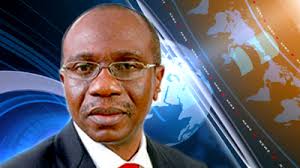The value of electronic payment rose by 150 percent in two years to N35 trillion in 2014, reflecting the impact of the cashless policy.
Deputy Governor, Economic Policy, Central Bank of Nigeria (CBN) Dr. Mrs Sarah Alade disclosed this in Lagos at the inauguration of the Payment System Strategy Board, Payment Scheme Boards and Initiatives Working Groups.
“Ever since the implantation of the PSV2020 initiatives in collaboration with the banking community and other stakeholder, Nigeria has witnessed an impressive growth in electronic payments and a steady shift from the dominance of cash payment”, Alade said.
From N13.687 trillion in 2012, value of electronic payments, excluding ATM transactions, rose to N35 trillion in 2014.
While transactions through the NIBSS Electronic Fund Transfer rose 7.5 percent to N14.6 trillion from N13.6 trillion in 2012, Point of Sale (PoS) transactions rose 550 percent to N312 billion from N48 billion. Similarly the NIBSS Instant Payment (NIP) transactions rose by 423 percent to N19.9 trillion from N3.8 trillion in 2012, while internet and Mobile payment transactions rose by 108 percent and 8,400 percent respectively. While internet transactions rose to N31.5 billion from N65.6 billion, Mobile payment transactions rose from N3.5 billion to N296.9 billion.
CBN Governor, Mr. Godwin Emefiele however described the huge growth in electronic payment as a stepping stone, noting that, “There are still a great deal to be done”.
He said the inauguration of the Payment System Strategy Board, Payment Scheme Boards and Initiatives Working Groups, is to further deepen the adoption of electronic payments in the country.
He said that the Payment Systems Strategy Board(PSSB) is being put in place to provide strategic direction for the National Payments System. “ This body will replace the National Payment Systems Council (NPSC), and will be the pinnacle organisation for the governance, management and operation of the Nigerian Payment Systems.
Its terms of reference (in addition to those outlined in the draft Payment Systems Management Bill) are majorly: To provide strategic direction and drive the overall National Payments System Strategy; To provide cross-scheme priorities and resource allocation; To arbitrate in cross-scheme decisions.
“The Board which shall be chaired by the Governor of the Central Bank of Nigeria, would have the following members: The Honourable Minister of the Ministry of Communication Technology, the Accountant General of the Federation, the four Deputy Governors of the Central Bank of Nigeria, the Chairmen of the four Payment Scheme Boards, independent Directors from the end-user community represented by the Director Generals, NACCIMA and Consumers Protection Council. Others are the Director Generals of the Securities and Exchange Commission (SEC) and the National Identity Management Commission (NIMC), the Chairmen of 2 subcommittees of the Banker’s Committee (Payments Infrastructures and Financial Literacy subcommittees), the Executive Chairmen of the Nigerian Communication Commission and Federal Inland Revenue Service, the Permanent Secretary of the Ministry of Justice”.

